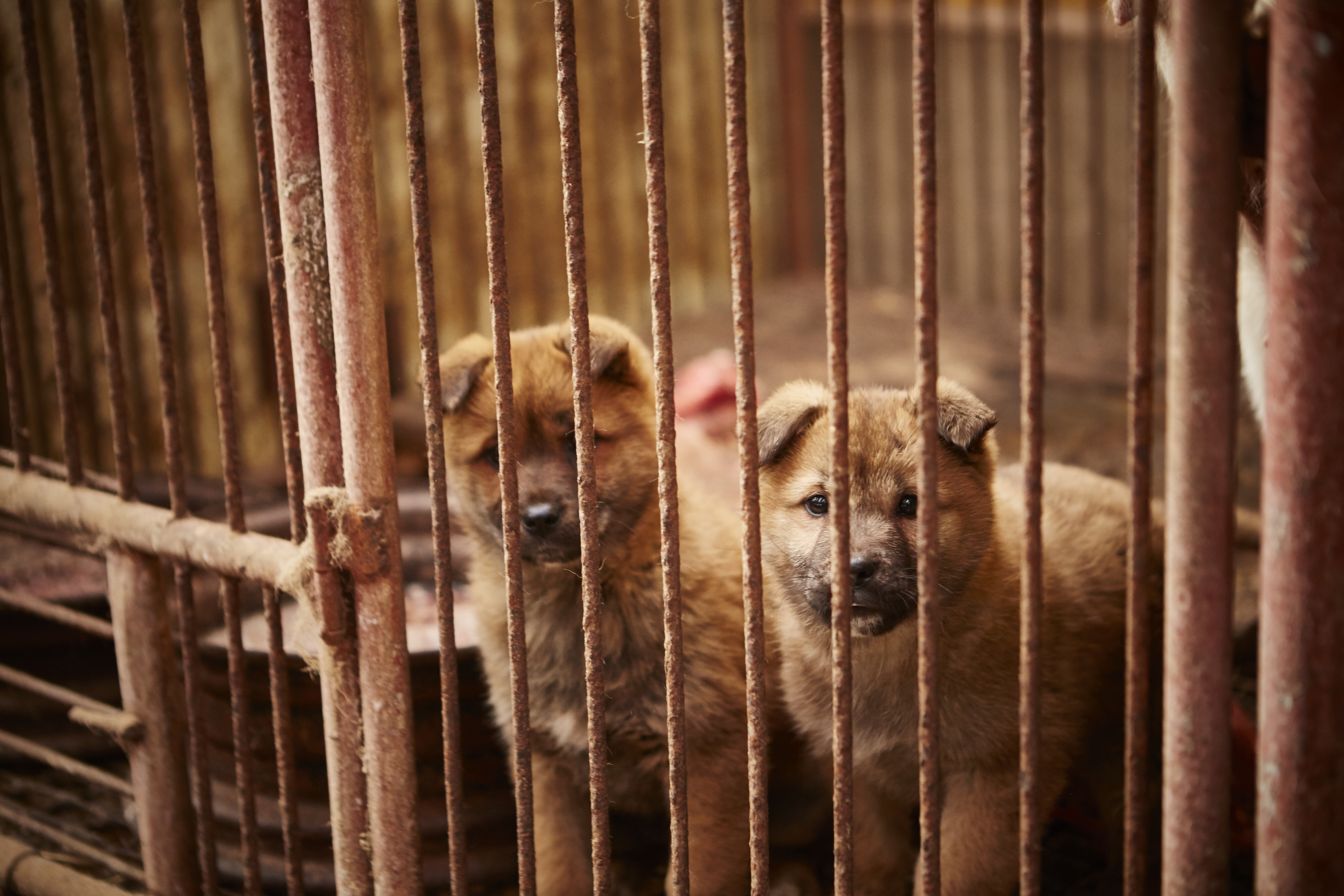
The Humane Society International and the Change for Animals Foundation rescued nearly 60 adult dogs and puppies from a dog-meat farm outside Seoul, South Korea.
Prior to their rescue, these dogs, including Elly in the video below, were living in small, cramped, fifthly cages, waiting to be electrocuted, hanged, or beaten to death and then eaten.
According to the HSI, the owner agreed to get out of the meat trade, which is a big win for the groups, who have been working tirelessly to end the dog meat trade in Eastern countries.
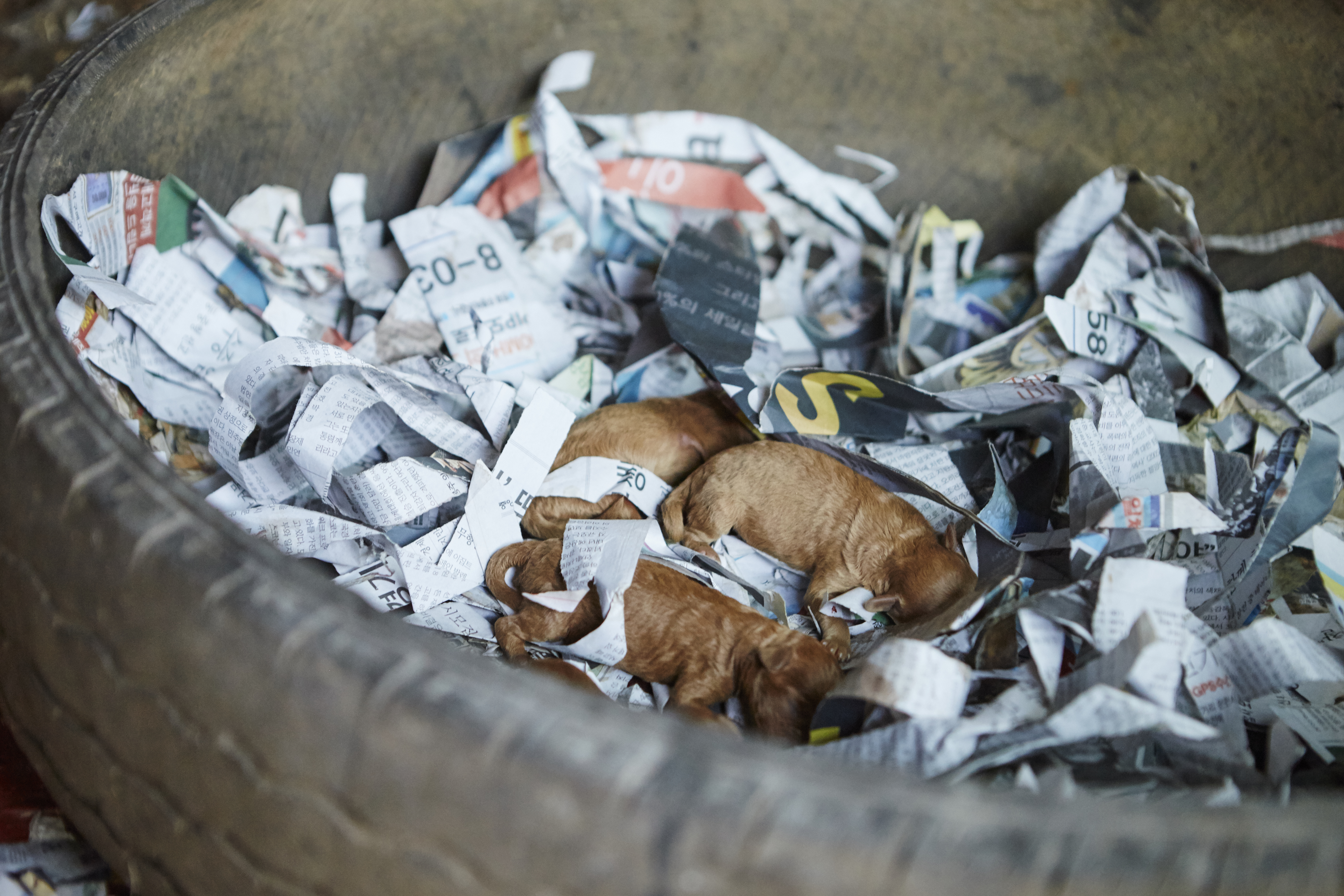
“For our Humane Society International staff rescuers, who worked tirelessly to spare them a gruesome fate, this is the latest action in a campaign to rid South Korea of thousands of dog farms and end the practice of putting dogs on the butcher’s block,” writes HSI CEO Wayne Pacelle. “We intend to bring a relentless focus to this campaign.”
A New Leash on Life
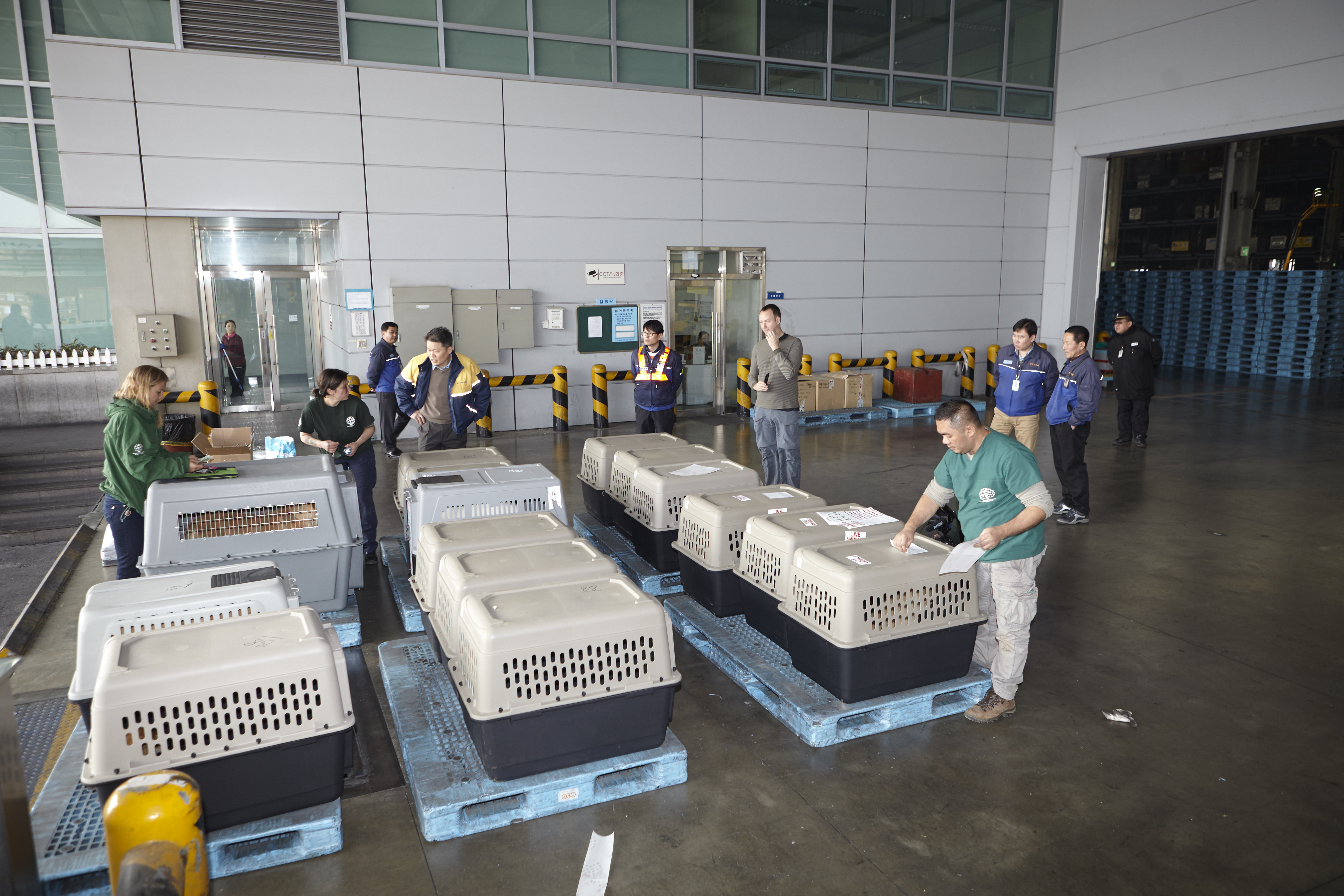
The dogs, which included beagles, poodles, Korean Jindos and Tosas arrived in San Franscisco with wagging tails, barks, and kisses, says Pacelle.
“The smallest gesture of affection was met with unbridled enthusiasm,” he adds.
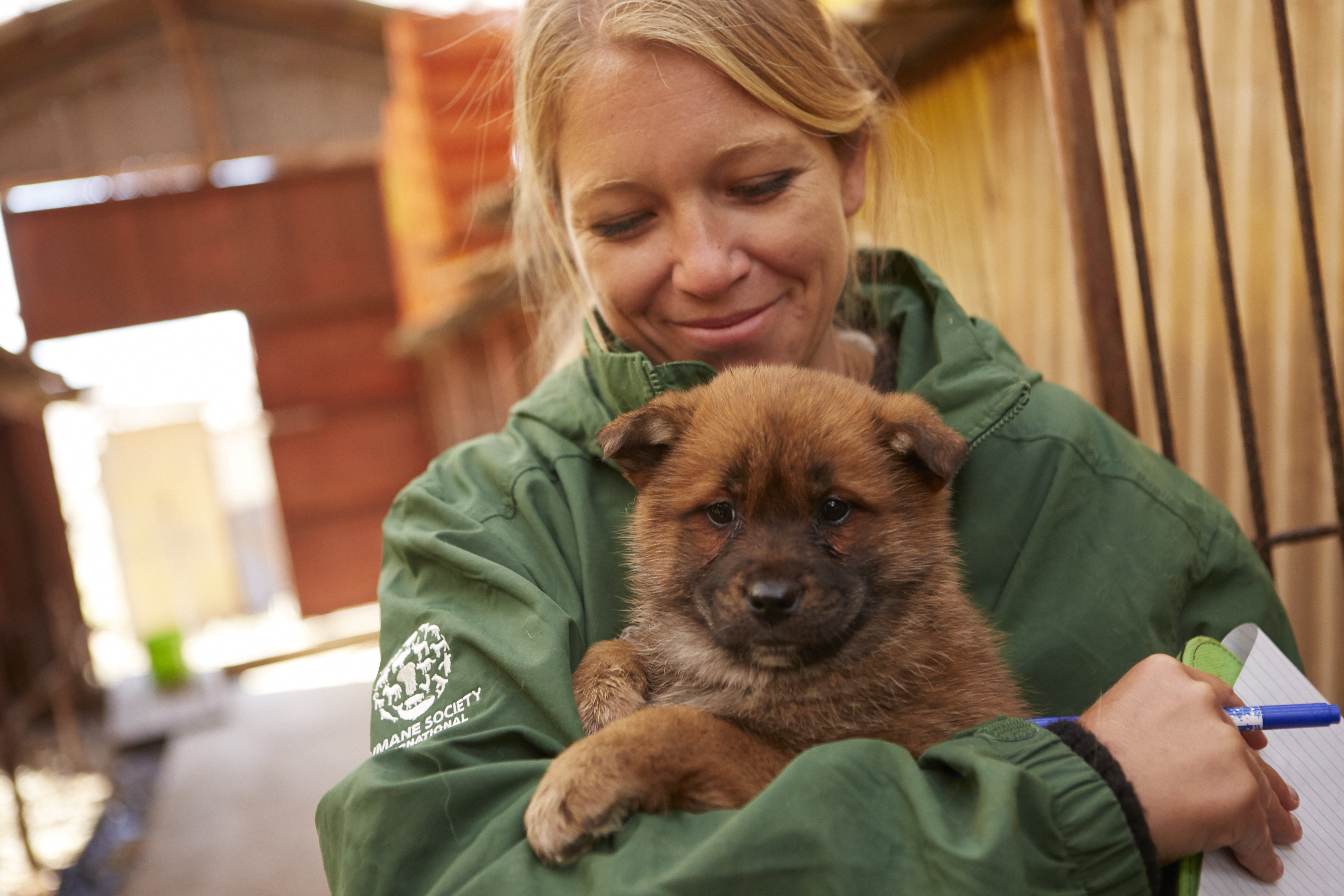
Lola Webber, HSI Asia campaign manager and CFAF director, said: “Some of these dogs were in a terrible state both physically and mentally. They’ve been starved of love their whole lives, living in fear and deprivation. As soon as we opened their cage doors and they realized we weren’t going to harm them, they wagged their tails and licked our faces. I felt very privileged to give these dogs the first ever cuddle and kiss of their lives.”
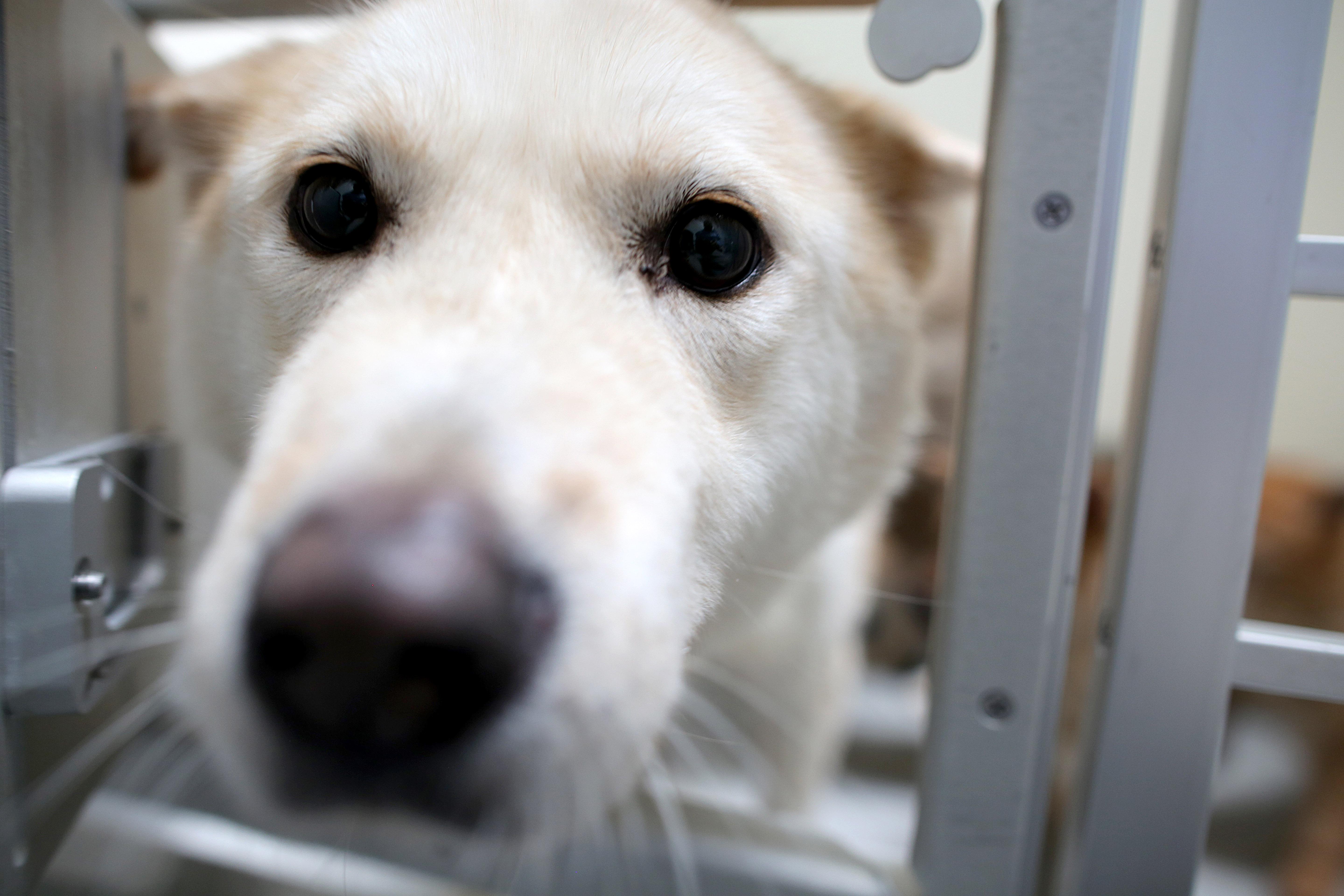
Adam Parascandola, Humane Society International’s Director of Animal Protection and Crisis Response told us that, overall, the dogs have done “amazingly well.”
He continues: “When you take into account that these dogs have probably never really been outside of their cages, much less off the farm, it is amazing how well they traveled and have adapted to their new environment. Because they have lived their entire lives in such deplorable conditions with little exposure to people or life in general, they all have a lot to learn about the world. Some of this will take time. Many of the puppies have immediately adapted to the new circumstances and are ready for every new challenge. For the adult dogs though, the world can be a little scarier. However, the majority of them do seek human contact and want to bond with people. They have not yet learned how to walk on a leash and are afraid to leave their runs, but over time they will learn that the world is not such a scary place. In terms of their health, many of the issues they faced are being resolved with access to good quality food and basic medical care such as deworming and vaccinations. The biggest health issue aside from that are several cases of heartworm, but most of the dogs are young and not symptomatic so treatment should go well.”
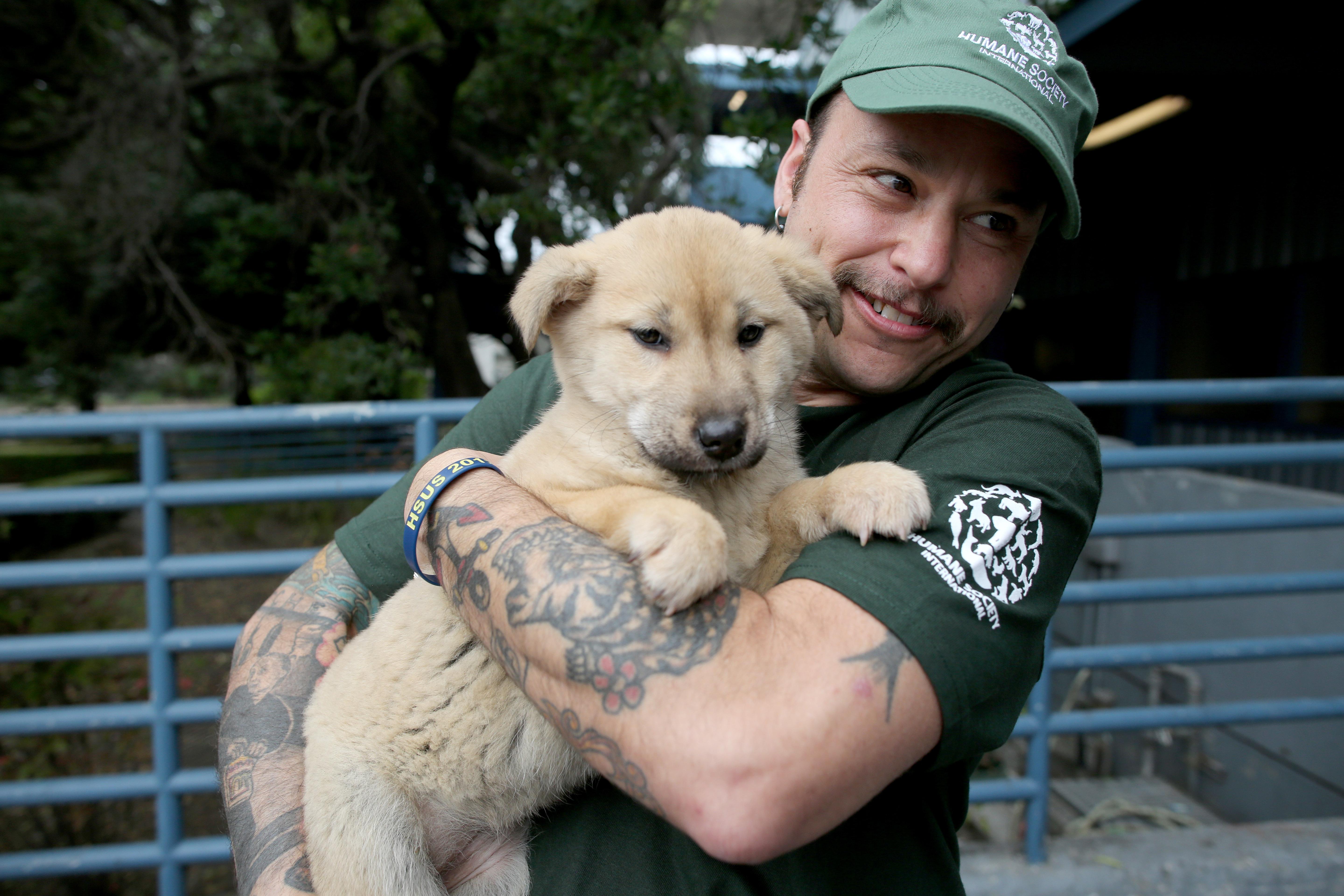
In Search of Homes
All the dogs are expected to be available for adoption as soon as this week. Those interested should contact the individual shelters for more information. The dogs were taken in by the following groups:
These are not the first dogs rescued from South Korea. In January HSI rescued 23 dogs and transported them to Washington, DC.
The 2018 Olympics – A Chance For Real Change
HSI and their partners are hoping that the 2018 Olympics, being held in Pyeongchang, South Korea will be an opportunity to focus attention on the meat trade.
“Our primary strategic goal is to get the South Korean government – a democratic government with a remarkable record of economic and social progress — on board with assisting farmers to make the change into alternative, more humane trades,” writes Pacelle.
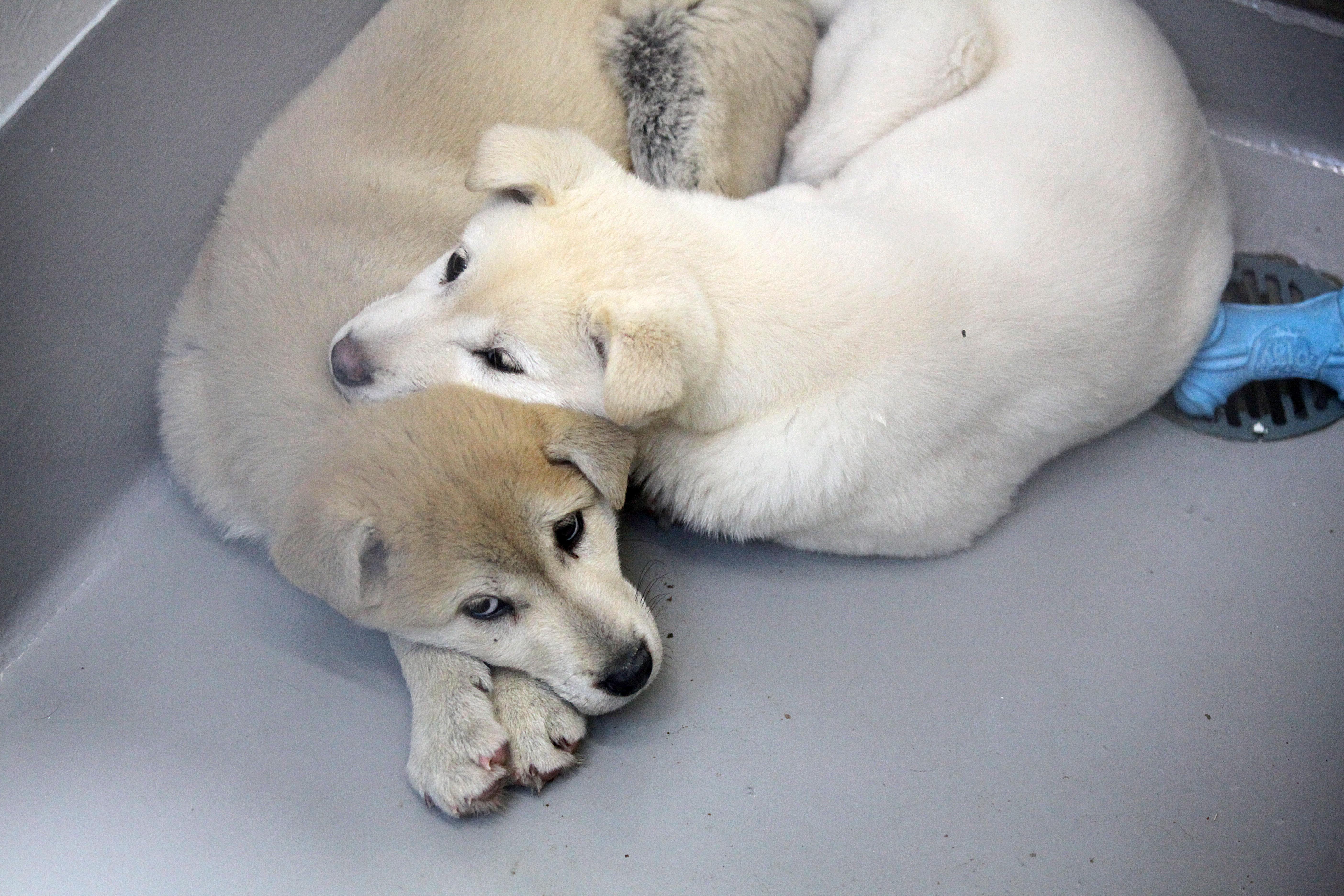
Parascandola adds that one of the main issues is lack of education.
He continues: “Much of the South Korean population does not eat dog meat and is appalled by the cruelty inherent in the dog meat trade. There is however still a belief that the dogs in the dog meat trade are a special breed of dog somehow fundamentally different from the purebred dogs that Koreans are increasingly welcoming into their homes and hearts.”
Many Koreans believe that dogs bred of meat or “mixes” are not pets, but more like livestock.
“Our hope is to help people understand that these dogs in the market are similar in nature to the dogs in their homes,” Parascandola says. “These dogs can also be loving companions to families. In time we hope this leads to a culture of adoption of these and other dogs within South Korea, which is currently very limited.”
Have a rescue story to share? Email me at Kristina@homelifemedia.com
